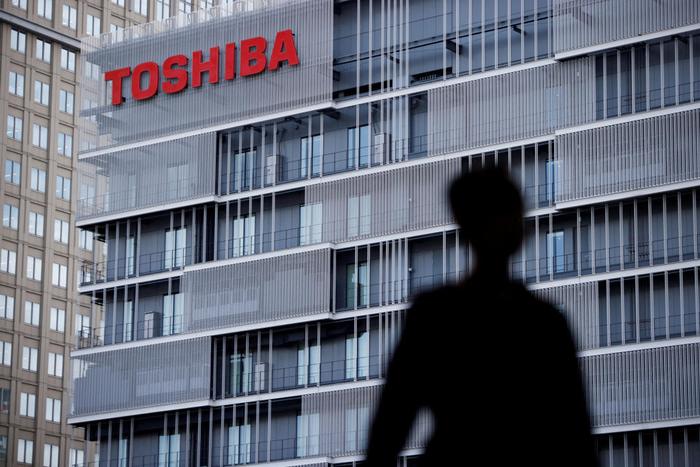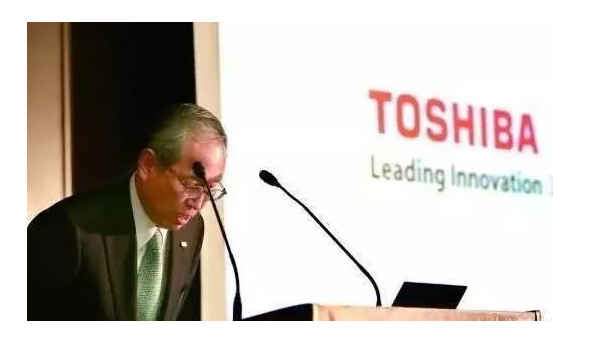
At the end of 2023, this winter was particularly brutal for Toshiba. Recently, Toshiba was delisted from the Tokyo Stock Exchange after 74 years. For Toshiba, one of the world's best-known companies with a history of nearly 150 years, such an encounter is truly regrettable. Toshiba has created numerous firsts, Japan's first light bulb, the first washing machine, the first refrigerator, the first television, the first rice cooker, and even the world's first laptop computer were developed by Toshiba, and maintained the world's first market share for seven years.
During World War II, Toshiba was Japan's main arms company, and was converted to the civilian sector under sanctions after the war. The market is mainly in China and South Korea, but with the rapid rise of Chinese home appliance companies, Toshiba's influence is becoming less and less, and some even say that Chinese home appliance companies are beating Japanese home appliance companies. Parts of Toshiba's business, for example, were bought by Chinese companies such as Changhong and Haier. But it is a stretch to think that Chinese companies have beaten Toshiba.
In fact, most Japanese home appliance companies are actively stripping off the home appliance business segment to find new growth points. For example, taking SONY as an example, the acquisition of Micronics medical diagnostic equipment company in the United States in 2011, and close contact with Olympus in 2012, the medical equipment market will undoubtedly become a new battlefield for SONY. For another example, Panasonic is one of the hot Tesla battery providers, and Panasonic has also acquired the world's largest US commercial refrigeration, freezing equipment manufacturing giant Hasman Company. These Japanese companies are revolutionizing the racetrack.
Of course, Japanese companies take the initiative to divest home appliance business, but also passive, and then active. This is where Toshiba comes in. In the 1980s, Japan's semiconductor technology and production capacity soared, surpassing the United States to become the world's largest supplier of semiconductor chips. As the leader of the global semiconductor industry Toshiba, Hitachi and other companies, the same quality but the price is always 10% lower "strategy to crush similar American products, to the United States related companies have brought great competitive pressure. In 1983, the U.S. Department of Commerce warned that the United States had fallen behind Japan in semiconductor technology, optical fiber technology, intelligent machinery technology and other aspects. As a result, the US side began to incubate a comprehensive plot to bring down the Japanese economy.

Just then, Toshiba hit the "muzzle". In 1985, Toshiba insiders exposed that Toshiba violated the ban of the Paris Coordinating Committee and sold four five-axis CNC machine tools to the former Soviet Union at a high price of 3.5 billion yen, so that the United States Navy lost the advantage of detecting the underwater sound of Soviet submarines. The United States, struggling to find an excuse, passed the famous "Plaza Accord" that year - through government intervention in currency markets, the dollar against the Japanese yen, the British pound, the franc and the German mark and other major international currencies, so as to promote American exports and balance the trade deficit. The consequences of the deal froze the Japanese economy for 30 years. It is worth noting that before Toshiba, companies from "Batumi" member states such as France, Italy and West Germany, as well as Norway's Kongsberg Company, had sold advanced military equipment such as precision machine tools to the former Soviet Union, but the United States only started to Toshiba, which is typical.
After a crackdown, Toshiba fell into the bottom, after a slow recovery. In 2006, Toshiba acquired a 77 percent stake in Westinghouse for 621.6 billion yen, or about three times the original valuation of the U.S. company. It should be said that Toshiba's decision to bet on nuclear power was not wrong, but sometimes there is a need to pay attention to fate. In 2008, two years after Toshiba acquired Westinghouse, the U.S. financial crisis broke out and swept the world, and the Japanese economy was hit hard again, and the construction of nuclear power plants had to slow down. In a more deadly blow, Toshiba was responsible for two of the six nuclear reactors that exploded after a serious leak at Japan's Fukushima nuclear power plant in 2011. Soon, Toshiba's "nuclear power plan" ran aground, and then in 2015 it broke out again financial scandal. As a result, Toshiba went further and further on the road of "selling and selling".
In 2020, the global coronavirus outbreak was the final straw for Toshiba. It can be said that Toshiba's final "sinking" has the factors of The Times, but also the fate of the bad, more is the suppression of the United States, and now, once proud of Toshiba, really became the Toshiba of that era.

Recently, the US State Department issued a visa ban, adding Thierry Breton, a former member of the European Commission and a key designer of the EU's Digital Services Act (DSA), to the sanctions list.
Recently, the US State Department issued a visa ban, adding…
On January 20, 2025, just 13 days after taking office, Trum…
On December 19, 2025, the U.S. Department of Energy, along …
The relationship between the Trump administration and the U…
On December 30, 2025, tech giant Meta officially announced …
Data shows that from April 2024 to March 2025, there were 3…